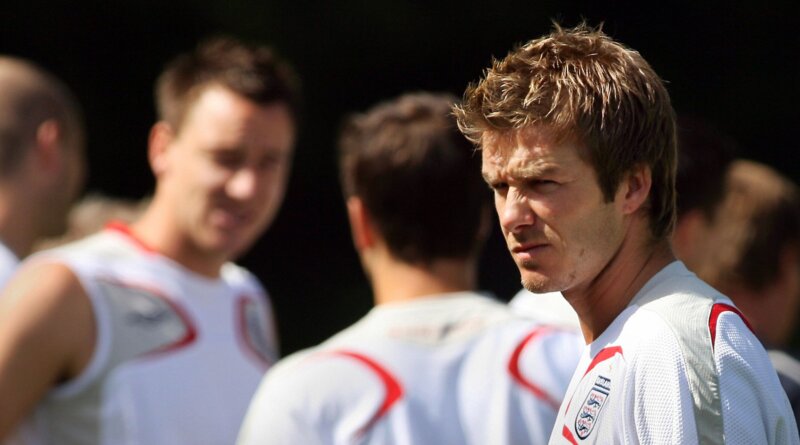James Beattie Reveals England Squad Cliques During Golden Era
James Beattie’s England Experience: Club Cliques and Beckham’s Welcome
James Beattie, former England international, has shed light on the challenging atmosphere within the Three Lions squad during the so-called golden generation. Beattie, who was at the peak of his club career with Southampton in 2003, has revealed that club cliques dominated the England setup, making it an unwelcoming experience for new call-ups.
James Beattie and the England Golden Generation
James Beattie’s England call-up came at a time when the national team was stacked with household names, many of whom played for top Premier League clubs. Yet, Beattie recalls that only four players introduced themselves to him upon his first arrival. He described how the squad was split into groups based on club loyalties, with players from Manchester United, Liverpool, Chelsea, and Arsenal often isolating themselves. This culture created a sense of division that, according to Beattie, affected team unity and the integration of new faces.
Club Cliques Undermined Team Cohesion
Beattie’s reflections highlight a well-documented issue of that era: the lack of cohesion within the England camp due to club rivalries. Despite the immense talent available, these divisions may have hindered the team’s ability to perform at major tournaments. Beattie noted that breaking into the established social circles was difficult, particularly for those coming from smaller clubs. He pointed out that such an environment could be intimidating for newcomers and potentially detrimental to overall squad morale.
David Beckham’s Role in Welcoming New Players
Among the established stars, David Beckham stood out for his inclusive approach. Beattie shared that Beckham was one of the few who made an effort to greet him and make him feel at home. The former Manchester United and Real Madrid midfielder’s professionalism and leadership were evident both on and off the pitch. Beckham’s actions contrasted sharply with the general atmosphere of exclusivity among other senior players, making a significant impression on Beattie.
The Impact of Cliques on England’s Performance
The dominance of club cliques within the England squad is often cited as a reason for the team’s underachievement during the golden generation. Despite boasting world-class talent, England consistently fell short on the biggest stages, including the UEFA European Championship and the FIFA World Cup. Beattie’s insight offers a personal perspective on why this might have been the case, with a lack of unity potentially undermining their chances of success.
Lessons for the Modern England Squad
Comparing Beattie’s experience to the current England setup reveals significant changes in squad culture. Modern managers and senior players place a strong emphasis on unity, inclusion, and integrating young or less-established players. The Football Association has also implemented programs to ensure a welcoming environment for all. This shift is widely credited with helping to create a more cohesive and successful England team in recent years.
Opinion: Why Squad Unity Matters Now More Than Ever
Beattie’s candid reflections serve as a reminder of the importance of fostering team spirit at the international level. The modern England squad appears to have learned from the mistakes of the past, prioritizing unity over club allegiances. As the Three Lions continue to challenge for major honors, maintaining an inclusive, supportive atmosphere is crucial for translating talent into trophies.
For more insights and the latest updates on international football, visit our homepage for more news.
Your global gateway to nonstop football coverage:
News Goal
Share this content:
